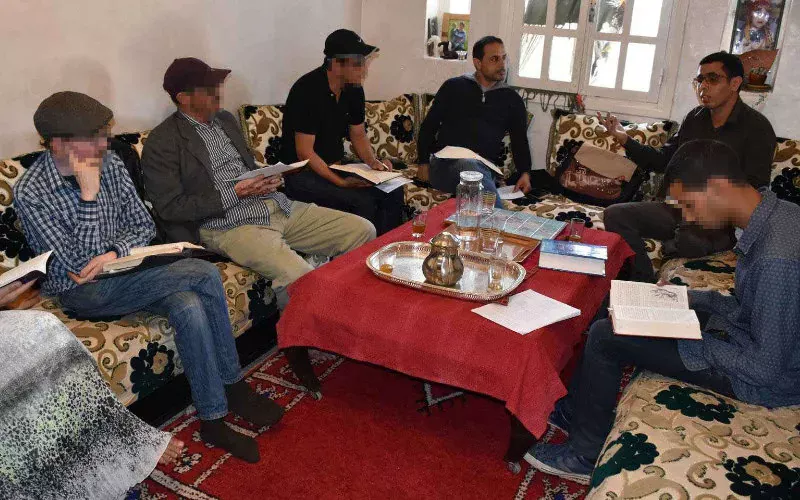Moroccan Christians Push for Religious Recognition, Challenging Status Quo

The Union of Moroccan Christians advocates for the legal recognition of the Christian component in the Moroccan religious fabric, and the guarantee of its presence in public debates related to freedom of religion and belief in the Moroccan context, which is characterized by the element of the Imarat al-Mu’minin (Commandery of the Faithful).
The Union of Moroccan Christians intends to seize the National Council of Human Rights (CNDH) in order to resume the debate initiated by the Coordination of Moroccan Christians during its meeting with the Council in June 2023. "The debate aims to highlight the situation of Moroccan Christian citizens, and to demand the guarantee of their fundamental rights enshrined in the Moroccan Constitution and international conventions, foremost among which is the freedom of belief and the practice of religious rites without discrimination," the organization specifies. For the organization, dialogue with national institutions, and first and foremost the National Council of Human Rights, is a necessary step towards the legal recognition of the Christian component in the Moroccan religious fabric, and the guarantee of its presence in public debates related to freedom of religion and belief in the Moroccan context, which is characterized by the element of the Commandery of the Faithful, absent in similar countries.
"The Union is preparing to send an official letter to the National Council of Human Rights to request a new meeting to discuss issues related to freedom of belief, and more particularly with regard to freedom of worship," says its president Adam Rbati. He believes that the current context has become conducive to the opening of a serious and responsible debate on freedom of conscience, in light of the human rights and institutional dynamics that Morocco is experiencing. "This initiative comes two years after the meeting that had brought together the Constitutional Council for the Monitoring of the Human Rights Situation in the Kingdom with the Coordination of Moroccan Christians," he further states.
According to Rbati, the organization he leads has taken note with interest of the demands that had been formulated at the time. Fundamental and essential human demands that he considers as a starting point for the expected debate, by developing them in a way to harmonize them with the evolution of the debate on human and religious rights in the country. According to the president of the union, the projected meeting, in the event that the National Council of Human Rights responds favorably to it, "will be an opportunity to present our visions in an institutional manner through a detailed note on the situation of Moroccan Christians and their religious and civil rights, on the basis of full citizenship, and respect for freedom of belief and its plurality within the unifying constants of the nation."
The current phase, marked by an official and societal debate around the revision of the Family Code, "calls for opening up to the demand for civil marriage in Morocco, in order to build an open vision adapted to the requirements of reality and the necessities of living together," confirmed the pastor of the Church of Glory in Témara. For him, it is necessary to open up on the educational level and to teach the subject of religious education instead of Islamic education, the school being a neutral space that must maintain the same distance from any spiritual or religious reference. In Rbati’s eyes, it is important to broaden "our understanding of the concept of Imarat al-Mu’minin in the Mashreq and the Maghreb."
"We consider that the Commandery of the Faithful, as affirmed by King Mohammed VI, encompasses all believers, regardless of their religion, and constitutes a unique reference that allows guaranteeing religious freedoms within a balanced institutional framework that respects specificities and protects rights," he said.
Related Articles
-

Morocco’s Billion-Dollar Israeli Arms Spree Reshapes Regional Defense
16 September 2025
-

Airport Sting Uncovers Algerian Passport Fraud Scheme
15 September 2025
-

Morocco’s Naval Ambitions Surge: French Submarines on the Horizon
15 September 2025
-

Moroccan Sues Highway Company After Stray Dog Crash Trauma
15 September 2025
-

Stranded Tourist’s Moroccan Ordeal Ends in Cross-Border Triumph
15 September 2025